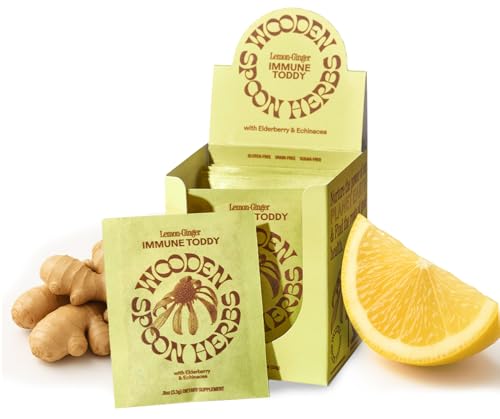Nutrition & Autoimmune Skin Diseases: Can Diet Help?
Quick Summary: This research review looked at how what you eat might affect autoimmune skin conditions that cause blisters. It found that certain foods and nutrients could make these conditions better or worse, especially for people with specific types of these diseases.
What The Research Found
The study looked at different autoimmune skin diseases, like pemphigus and bullous pemphigoid. It found:
- Gluten-free diets can really help people with dermatitis herpetiformis (a skin condition linked to celiac disease).
- Certain foods like garlic and onions (which contain thiols) might make pemphigus worse for some people.
- Low levels of vitamin D and zinc could be linked to more severe symptoms in some conditions.
- Anti-inflammatory diets (like the Mediterranean diet) might help reduce inflammation and blisters, but more research is needed.
Study Details
- Who was studied: This wasn't a study of people directly. It was a review of other studies that looked at people with autoimmune skin conditions.
- How long: The review looked at existing research, so there wasn't a specific study duration.
- What they took: The review focused on different diets and nutrients, not specific medications or supplements.
What This Means For You
If you have an autoimmune skin condition:
- Talk to your doctor: Discuss how your diet might be affecting your condition.
- Consider a gluten-free diet: If you have dermatitis herpetiformis, avoiding gluten is very important.
- Get your vitamin D and zinc levels checked: Your doctor can test for deficiencies.
- Think about an anti-inflammatory diet: Eating foods rich in antioxidants and omega-3s (like a Mediterranean diet) might help, but talk to your doctor first.
- Personalized approach: Remember that everyone is different. What helps one person might not help another.
Study Limitations
- Review of other studies: This study didn't do its own research. It looked at existing studies, which can have different designs and results.
- More research needed: There isn't enough strong evidence to say exactly how much diet can help, so more studies are needed.
- Not about Echinacea: This study did not evaluate Echinacea or its role in AIBDs.
Technical Analysis Details
Key Findings
This narrative review highlights the interplay between nutrition and autoimmune bullous diseases (AIBDs), including pemphigus, bullous pemphigoid, dermatitis herpetiformis, and epidermolysis bullosa acquisita. Key findings suggest that dietary factors (e.g., thiols, gluten, and certain vegetables) may influence disease activity, with gluten-free diets showing efficacy in dermatitis herpetiformis. Nutritional deficiencies (e.g., vitamin D, zinc) linked to AIBDs may exacerbate symptoms, while anti-inflammatory diets (rich in antioxidants, omega-3s) could support treatment. However, evidence remains inconclusive for most nutrients, emphasizing the need for personalized dietary approaches.
Study Design
Type: Narrative review (observational study).
Methodology: Systematic analysis of existing literature on dietary factors, nutrients, and their associations with AIBD pathogenesis and treatment.
Sample Size: Not applicable (review of prior studies).
Duration: Not specified.
Dosage & Administration
No specific dosages or administration protocols were reported, as this review focused on dietary patterns and nutrient categories rather than isolated supplements.
Results & Efficacy
- Gluten-free diets: Strong evidence for efficacy in dermatitis herpetiformis (celiac disease-associated AIBD), with symptom improvement correlating with gluten avoidance.
- Thiols: Found to potentially exacerbate pemphigus (e.g., garlic, onions) in some cases, though mechanisms remain unclear.
- Vitamin D/zinc deficiencies: Associated with increased disease severity in pemphigus and bullous pemphigoid (BP), though supplementation studies lacked robust clinical trials.
- Anti-inflammatory diets: Limited evidence suggests benefits in reducing blister formation and inflammation, but no quantified effect sizes provided.
Limitations
- Narrative review: Lacks meta-analysis or pooled data, relying on qualitative synthesis.
- Heterogeneity: Studies varied in design, populations, and outcome measures, limiting generalizability.
- Bias risk: Selection bias possible due to non-systematic inclusion criteria.
- Gaps in research: Few randomized controlled trials (RCTs) on dietary interventions; causality not established.
Clinical Relevance
For individuals with AIBDs, dietary adjustments may complement medical treatments. Dermatitis herpetiformis patients should strictly avoid gluten. Monitoring for vitamin D and zinc deficiencies is prudent, particularly in pemphigus and BP. While anti-inflammatory diets (e.g., Mediterranean-style) show theoretical promise, their efficacy requires further validation. Clinicians should advise personalized nutrition plans due to individual variability in dietary triggers.
Note: This study does not evaluate Echinacea or its role in AIBDs. The analysis focuses solely on nutrients and diets mentioned in the provided summary.
Original Study Reference
The Role of Nutrition in the Pathogenesis and Treatment of Autoimmune Bullous Diseases-A Narrative Review.
Source: PubMed
Published: 2024
📄 Read Full Study (PMID: 39599747)


